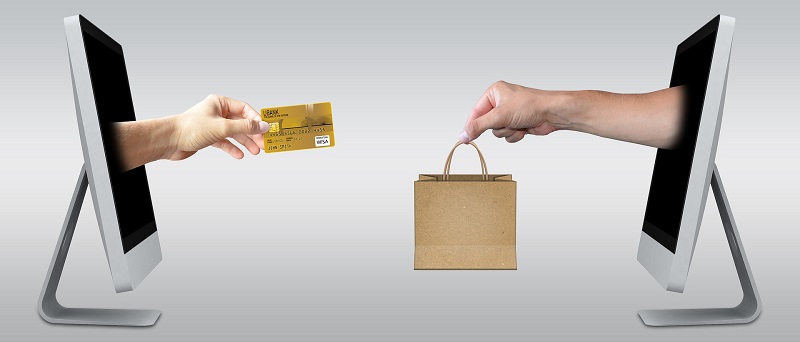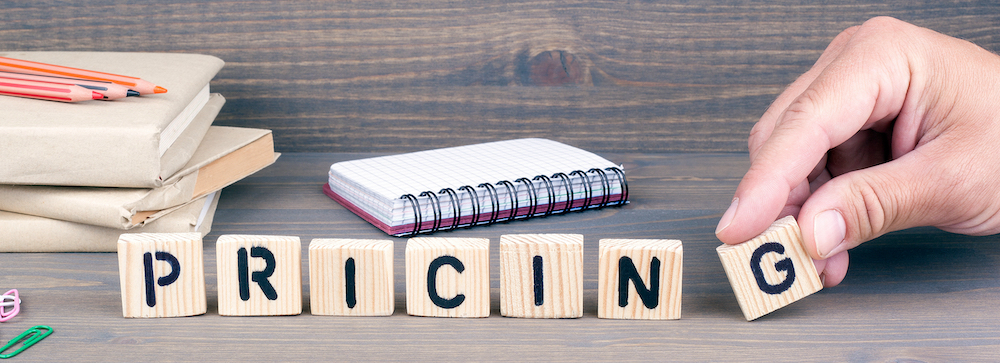
Upselling Tips: How to Sell More to your Customers
POSTED ON: Friday, November 14th, 2014
Upselling provides the opportunity to offer your customers some profitable optional extras at the time of purchase, when they have already decided to buy. Already committed to the main purchase means that every extra add-on turns into extra profit.
With any pricing structure there will always be some customers who could have been persuaded to pay more for that product or service. So the offer to spend more on a related product or service that adds extra value may be welcomed by many.
Free Online Business Health Assessment
Discover how upselling can benefit your business with our free online health assessment tool.
Start Your TestOne of the obvious ways to improve the profit of your business is to put the price up. However you could lose some customers. Or in a very competitive market that is price sensitive, lose many customers. Upselling gives the opportunity to have a similar effect without losing sales. Indeed you are not putting the price up for an existing sale, but adding even more value via optional extras.
So what can an SME do to sell more to those customers?
Whilst every business will have its own unique opportunities, there are some consistent tried and tested approaches. The underlying issue is to add more value to the customer than the extra cost that your business will incur. For example; you want more profitable add-on sales that makes you happy and your customer happy.
Here are some of those themes and ideas that you could use to improve your business’s upselling and give your customers choice:
Time
People pay to save time or to get something delivered quickly. Amazon offers slower free delivery, or faster delivery for an extra cost. Or of course with ebooks they can offer instant delivery as the product is downloaded immediately.
Is there an optional service that you could offer to save the customer the time that they would otherwise have to put in? For example flat-pack furniture can be delivered with an optional service to build the item? This saves the customer time … and frustration!
Some services provide a tool to do a job and then, as an add-on, also offer to set up the tool for the customer. Or even operate it on their behalf as an ongoing service.
How could your business offer a complementary upselling product or service to save customers time?
Convenience
Sticking with the theme of delivery. I’m sure many people have experienced the frustration of a delivery service requiring you to be at home all day to receive that delivery. It can feel as though the arrangements are only there to suit the delivery company and not the customer. Premium pricing for a fixed delivery time slot, or for Saturday deliveries is an effective upselling opportunity.
Other services can be delivered at a convenient place. For example; at home. Through a convenient medium, e.g. the internet. Or in a convenient format, e.g. a video or a recorded webinar watched later on demand rather than having to attend the live one at an inconvenient time.
Can you provide a service out of normal hours? Or give a choice of delivery options? Or a range of formats? What would “convenient” look like for your customers?
Comfort
Airlines sell comfort for a premium price. There are plenty of upselling offers to allow you to “go premium” when buying a an airline ticket. Or even to make an offer for an upgrade which the airline can accept if they have spare seats in business or first class.
Hotel chains offer larger, more comfortable rooms. Some taxi companies offer premium cars that are more comfortable. Airlines offer airport lounges that are more comfortable environments to wait in.
Could you design a profitable upsell to make your customers more comfortable?
Expertise
You almost certainly have some expertise that is not already in a product or service. Some customers will pay to learn from the expert. After all they are already interested in your product or service. Whether it is to expand their own knowledge, or to ask advice or to tap into your experience, there is the potential to share your expertise and accumulated knowledge.
You may sell a product, but you could also sell a service to train them in how to use it most effectively? This is particularly common with software, where add-on training videos or helpline support can be offered as an upselling opportunity.
Accountants, lawyers and other professionals can write books or training courses to complement their main service.
How can you package your expertise?
Risk
A classic upsell when purchasing car rental, a washing machine or a loan is to be offered insurance or a warranty. This gives the customer “peace of mind”. A rather intangible feeling which is not always justified when you read the small print. But may also cover a real financial risk to the customer. Declining an insurance product often leads to the seller explaining the potential impact of the risk that you’ll be taking – and asking “are you happy to take that risk?”
A software provider can provide a backup service to cover a risk. An accounting practice specialising in tax work may offer an extra add-on to guarantee covering any adverse findings from a tax inspection.
So is there some extra “peace of mind” that you can sell to your customer as an additional product or service?
Bespoke
There is often a way to change a product or service to suit the customer’s individual needs and tastes more closely. Whether it be a design process or a lawyer drafting a document, or a training provider writing a programme, each change does incur extra costs and could be charged for.
A bespoke service is generally a premium service anyway. But a standard service can also be sold with optional changes being charged as extras. For example the training provider has a standard training programme, the client wants certain changes and each one could be charged for.
If the customer changes their mind, that’s fine, but there is a cost to the business and so the potential to make a charge to the customer.
Are you charging for changes, tweaks and changes of mind? Are you clear with your customer about how changes will be handled and billed for?
Personal service
Most customers like to be heard and be made to feel special. They want to be treated like individuals. The personal service offers this. This could be by assigning an individual account manager or mentor to them. Or receiving courtesy calls from someone they know rather than sales calls from an anonymous call centre. Not only do people have more of an emotional connection with an individual, which keeps the business front of mind for next time they buy, but also this value-added service could be charged for.
For example certain high-end credit cards can give you a dedicated account manager who can arrange travel etc for you, acting like a personal concierge. Or a holiday company offering a personal tour guide rather than going in a group.
How could you create a more personal service or experience for your customers as an add-on?
The Best
Some people only want to buy the best and they will pay for every premium add-on that you have so that they can feel that they’ve gone for the best on offer. This gives huge scope for lots of bells and whistles and for highly profitable add-ons.
First class travel with a chauffeur driven transfer to a five star hotel with a premium room and champagne served on arrival etc. Or it could be personal tutoring from the most senior and experienced tutor rather than dealing with just any of the teachers. Or dealing with the partner rather than one of the staff. Or having the expensive tasting menu with all the accompanying wines. Or the wax, polish and the valeting of the car, rather than just a standard car wash or maintenance service.
Whatever the options some people will just want the biggest and best, so make sure it includes some profitable elements for your business.
What does the “best” customer package look like for your business?
Opt-in or opt-out
Most people will pay for something that is the default option. It’s not often in a restaurant that someone deletes the “optional 12.5% service charge” from the bill. But they can do. Consider charitable donations, these are almost invariably set up by direct debit so that the charity deducts it each month from the bank account and the default option is for you to keep giving. Travel insurance is another item that is often included by default.
So is there a product or service bundle that your business could offer that includes some extras by default? Or a recommended bundle of products and services? They need to be bundled together for good reason and to add value and the customer should always have the choice to remove them.
Is there a default option or bundle that you can offer? How can you use inertia and momentum to work for your business?
Don’t forget to ask
Finally, don’t forget the most obvious rule – the more you ask, the more you get. So are you asking what extras your customer would like?
And by the way, do you want fries with that?
About the author:
Andy Turnbull
Business Improvement Specialist
Guildford, Surrey
Andy Turnbull works with businesses in Surrey to develop and grow. Originally an accountant by profession he has been a finance director and non-executive director of national and international organisations. He is a member of the Institute of Enterprise and Entrepreneurs and a Fellow of the Institute of Leadership and Management. He can be contacted at enquiries@pro-actions.com

Talk to the Experts
Book Your Free Business Advisory Session
Pro-actions offers free business advisory sessions offer hands-on, practical recommendations to help you get more out of every customer interaction.
Book Here!

